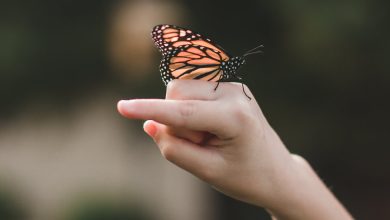Will Covid Evolve to Be Milder?

As the world braces to deal with yet another SARS-CoV-2 variant, this one called Omicron, there’s speculation on social media and elsewhere that the virus will become milder, as if this is a predetermined outcome. Some believe that logically the inevitable path of any virus is to become more transmissible and less lethal over time, as this is the most effective way to infect the highest number of hosts and continue spreading.
While this is an obviously attractive scenario, unfortunately it is not something the virus cares about.
Viruses don’t care who they infect, how long the infection lasts or what the disease they induce is like. A virus doesn’t care about anything because all a virus needs to do is find a new host in which it can propagate. That is it.
Spreading from person to person is the critical function a virus must perform to sustain itself. What it does to its host is irrelevant, except if it affects transmission.
Virtually all viruses cause some sort of disease as a part of their natural progression. The reasons for why they cause disease are varied. Disease may be a consequence of killing a cell that has served its purpose from the virus’s perspective, after having used it to make hundreds or thousands of copies of itself. For viruses that spread through respiratory droplets, that disease often manifests as sneezing, coughing and a runny nose. All these symptoms help the virus get out of its host and on to the next one.
Some respiratory viruses can spread before they cause symptoms, but they often spread more effectively when symptoms develop. Inducing some disease may be critical for respiratory virus transmission.
As someone who studies viruses, I often hear the phrase, “A dead host is not a good host,” or some version of that. This is probably true for most viruses, and certainly if a virus killed every person it infected it would eventually run out of hosts, which is not a good thing for the virus.
But what is really important is how efficiently the virus spreads. Does making a person very ill provide the virus with some advantage that makes transmission more effective? If the answer to that question is yes, then the virus may continue to make people severely ill because that strategy works.
But there’s no high-level “thinking” involved. All viruses mutate, and those mutations occur randomly. A good portion of those mutations don’t affect the virus’s ability to replicate or spread at all. It is these mutations that give the variant a unique fingerprint that can be used to trace chains of transmission and understand how it is spreading locally and globally. Mutations that limit the virus’s ability to replicate are rarely detected because those variants can’t compete with the original virus and quickly go extinct.
Every once in a while, the virus will acquire a mutation that gives it an advantage. Those mutations can affect many different things, but in the end, if this mutated virus can transmit better than the starting virus, there is a good chance that it will go on to become the dominant variant. This is essentially Darwinian evolution by natural selection, performed over weeks or months instead of thousands of years.
Will Covid-19 become milder over time? The answer to that question is most likely yes, but it may not have anything to do with the virus evolving to induce milder disease.
Scientists now know that SARS-CoV-2 can, at least to some degree, reinfect people who were previously infected or vaccinated. The combination of prior infections and vaccinations are building immunity in the population. This immunity isn’t perfect because it can’t block infection completely, but it does dampen the disease the virus can induce by shortening the time of infection, reducing the amount of virus that is produced and therefore reducing the symptoms and disease.
To protect against infection with the Omicron variant may require an even higher level of immunity than what was needed against other variants. This kind of immunity can be provided by a booster dose in vaccinated individuals or vaccination after infection.
In December 2019, SARS-CoV-2 entered a human population that had no immunity to it. In December 2021, the Omicron variant is entering a human population that has a large amount of immunity to SARS-CoV-2. That immunity in and of itself will lessen the disease severity of the variant. But in people with limited or compromised immunity, such as the unvaccinated, the elderly or the immune compromised, SARS-CoV-2 may still be able to cause severe disease because they don’t have protection conferred by pre-existing immunity. Covid-19 becoming a milder disease is not a decision the virus will make, it’s a decision that all of us can make if we take advantage of the vaccines that can control spread and reduce the burden of this disease.
Andrew Pekosz investigates the replication and disease potential of respiratory viruses including SARS-CoV-2, influenza and other emerging viruses. He’s a professor of microbiology and immunology at Johns Hopkins University Bloomberg School of Public Health.
The Times is committed to publishing a diversity of letters to the editor. We’d like to hear what you think about this or any of our articles. Here are some tips. And here’s our email: [email protected].
Follow The New York Times Opinion section on Facebook, Twitter (@NYTopinion) and Instagram.




